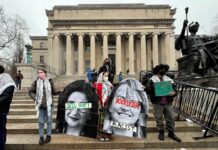In modern America, it is a sad reality that it can be argued that the sizable majority of the American public possesses a greater amount of knowledge on the culture of contemporary “celebrities” than they do of their own government and civics. Indeed, in modern times, great emphasis and attention is placed on and given to music artists, reality tv stars, models, internet “influencers”, and professional sports athletes. Sadly, while many young people are well aware of who Kim Kardashian may be or routinely follows the social media account of a popular rap artist, a declining number possess rudimentary civics knowledge. Alarmingly, according to an annual survey called the Annenberg Constitution Day Civics Survey, only 66% of Americans can name the three branches of government (Judicial, executive, legislative).
In the period following the American revolution, the founding fathers formed the modern federal government during the constitutional convention of 1787. Laying the framework for our current system of governance, these men placed the burden of the maintenance of liberty and the integrity of government on the people of the nation themselves. Many founders warned ardently of what would happen if future generations were not educated and properly informed.
Now, in the 21st century as the nation nears its 250th birthday, there has been an increasingly worrisome trend in which there has been a fusing of entertainment and politics. Most recently, the White House National Security advisor made a comment that they could “not confirm or deny” whether or not Taylor Swift and Travis Kelce were in a relationship. Swift has made media headlines after being spotted with the football star and in attendance at several games. Sadly, during a time in which international politics is in turmoil, 60% of Americans are living paycheck to paycheck, and millions of illegals cross the southern border annually, top ranking officials within the government are more concerned with celebrity affairs than their own constitutional duties.


















